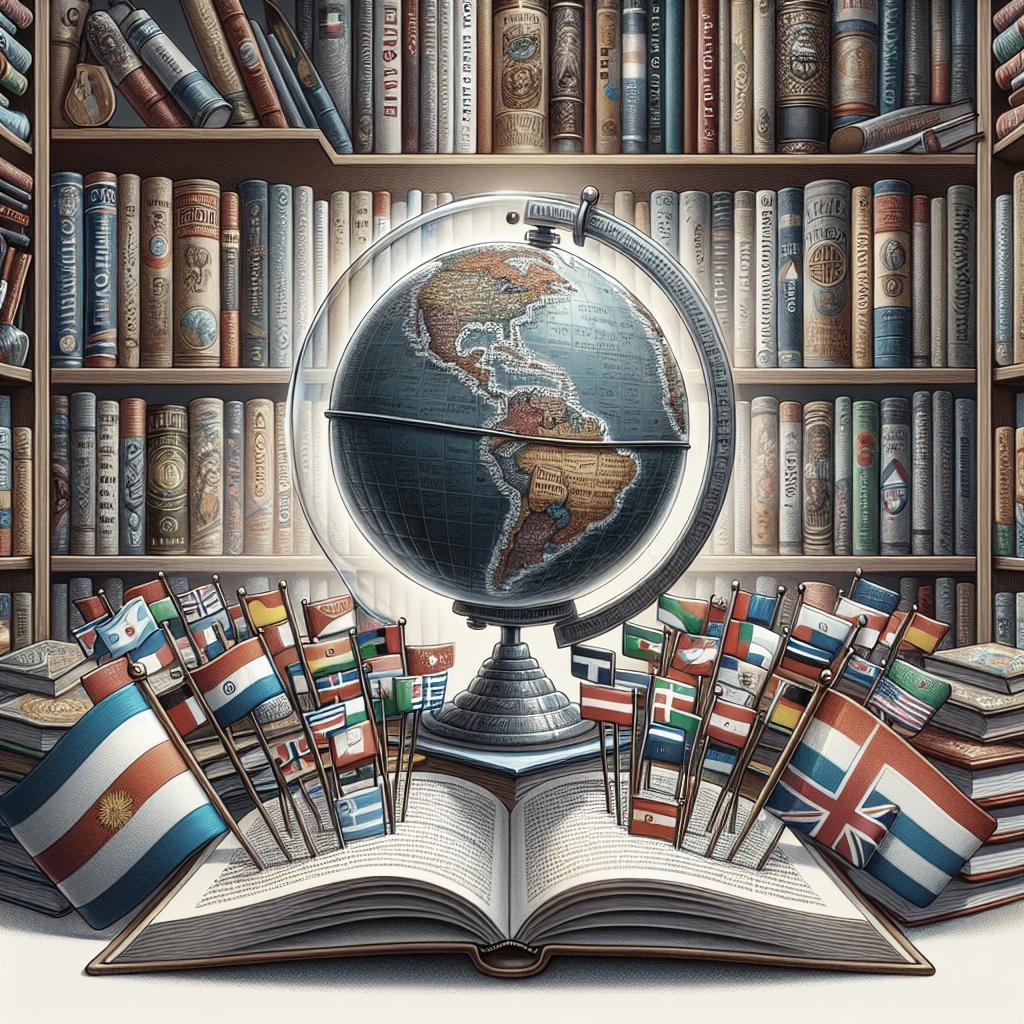How Reading Can Improve Intercultural Understanding
Introduction:
In today’s globalized world, intercultural understanding is more important than ever. Reading serves as a powerful vehicle for exploring and appreciating different cultures, helping to break down barriers and foster global empathy. By engaging with diverse narratives, readers can deepen their knowledge, challenge stereotypes, and develop a more informed perspective on cultural differences and similarities. This article examines the ways in which reading enhances intercultural understanding, the benefits it brings, and strategies for effective cultural exploration through literature. Ultimately, reading not only educates but also empathizes, paving the way for a more harmonious coexistence.
Abstract
In an increasingly interconnected world, intercultural understanding is crucial for fostering harmony and respect among different communities. Reading, as a means of engaging with diverse cultural narratives, plays a significant role in enhancing this understanding. This blog post explores how reading helps to improve intercultural comprehension by providing insights into different societies, challenging preconceived notions, and encouraging empathy. It highlights the benefits of multicultural literature, including broader perspectives and enriched communication skills. Furthermore, practical strategies for maximizing the intercultural learning potential of reading are discussed, emphasizing the selection of diverse authors and critical reflection. The article concludes by discussing the future prospects of intercultural understanding through reading in a digital age.
Insights into Different Cultures
One of the fundamental ways reading improves intercultural understanding is by offering valuable insights into various cultural contexts. Books and literature serve as windows into the lives of people from different backgrounds, providing authentic portrayals of their traditions, values, and daily experiences. Through reading, individuals can gain a deeper appreciation for cultural diversity and complexity.
Literature allows readers to explore cultures beyond superficial levels, going beyond mere stereotypes and generalizations. By delving into the emotions, motivations, and struggles of characters, readers can develop a nuanced understanding of the factors that shape cultural identities. This enriched comprehension can lead to more empathetic interactions in real life, as readers become more adept at recognizing and respecting cultural differences.
Exposure to international literature broadens the reader’s worldview and helps break down cultural barriers. When individuals engage with diverse narratives, they come to recognize universal themes that connect humanity, fostering global cohesiveness. Consequently, reading becomes a gateway to adopting a more inclusive mindset.
Challenging Stereotypes and Preconceived Notions
Reading plays a pivotal role in challenging stereotypes and moving past ingrained cultural biases. Often, misconceptions about other cultures arise from limited exposure or reliance on one-dimensional portrayals. Exposure to literature that accurately reflects diverse experiences enables readers to question and reconsider their preconceived notions.
By engaging with stories that defy stereotypical representations, readers are encouraged to think critically about cultural generalizations. Literature prompts them to view individuals within their cultural contexts as complex, multifaceted beings, rather than mere representatives of a single narrative. This critical engagement is essential for nurturing intercultural understanding.
Moreover, reading about historical contexts and the evolution of cultures can help illuminate how stereotypes have developed and persisted over time. By understanding the underlying causes, readers can contribute to breaking these cycles and promoting more accurate and fair portrayals of diverse communities.
Encouraging Empathy and Emotional Connection
One of the most powerful outcomes of reading is the development of empathy and emotional connection with individuals from different cultural backgrounds. Through literature, readers can inhabit the minds and emotions of characters who are different from themselves, promoting a sense of shared humanity.
Empathy nurtured through reading allows individuals to put themselves in the shoes of others, understanding their joys, struggles, and aspirations. This emotional connection transcends linguistic and geographical boundaries, offering a profound appreciation for cultural variations. As readers encounter stories that resonate emotionally, they are more likely to adopt inclusive attitudes toward those who are different.
Additionally, when readers empathize with characters facing discrimination or prejudice, they become more sensitive to the injustices faced by marginalized groups. This heightened awareness can inspire advocacy and a commitment to fostering inclusivity and equity in multicultural environments.
Strategies for Effective Cultural Exploration Through Reading
To maximize the intercultural learning potential of reading, it is essential to implement specific strategies when exploring foreign literature. Selecting books written by authors from various cultural backgrounds ensures authentic representation and diverse narratives. Engaging with works translated from other languages can also offer unique insights into cultural nuances.
Joining book clubs or discussion groups focused on global literature provides an excellent platform for sharing and enriching intercultural understanding. Exchange of perspectives and dialogue allow readers to interpret texts in novel ways, gaining fresh insights into the cultural contexts explored within stories.
Reflective practice is another essential component of effective cultural exploration. Taking notes, journaling reflections on cultural insights, and engaging in critical analyses of themes strengthen the learning process. This practice encourages readers to actively engage with the literature, deepening their intercultural understanding.
Future Prospects: The Role of Reading in a Digital Age
As technology continues to advance, the ways in which readers engage with literature are evolving. Digital platforms offer unprecedented access to a vast array of multicultural literature, breaking geographical and financial barriers. Online book communities and virtual libraries provide opportunities for cross-cultural exchanges, expanding intercultural understanding.
The digital age also presents unique prospects for promoting diverse voices and authors who might have been overlooked in traditional publishing. As more readers turn to e-books and audiobooks, the accessibility of global narratives increases, fostering greater intercultural interaction.
In the future, leveraging technology to incorporate multimedia elements, such as videos and interactive experiences, could further enhance readers’ understanding of cultural contexts. The synergy between traditional storytelling and digital innovation holds the potential to revolutionize the way individuals connect with and appreciate diverse cultures through reading.
| Key Aspect | Description |
|---|---|
| Insights into Different Cultures | Reading provides deep insights into cultural contexts, promoting empathy and appreciation for diversity. |
| Challenging Stereotypes | Literature helps challenge stereotypes by offering complex, nuanced portrayals of cultural identities. |
| Encouraging Empathy | Reading fosters empathy and emotional connections, enhancing understanding of diverse experiences. |
| Effective Exploration Strategies | Strategies include selecting diverse authors, participating in book discussions, and engaging in reflective practice. |
| Role in a Digital Age | The digital age offers opportunities for wider access to multicultural content and innovative storytelling methods. |


